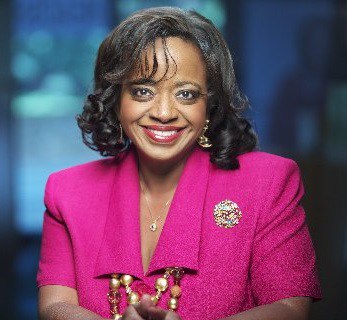When news broke that two American medical missionaries stricken with the virulent Ebola virus were being transported to the United States, opinions around the world, in America, and on the streets of Atlanta, GA, were mixed…as they yet remain.
Some passersby lauded Atlanta’s Emory University Hospital (EUH) for welcoming the sick to the institution. Others grew nervous that nearby citizens and anyone visiting or currently an inpatient at the facility may become infected. Many wondered how Dr. Kent Brantly, and missionary Nancy Writebol became infected in the first place; and others asked, “Why can’t we just send workers to Liberia, and treat the patients there? Why bring them here at all?”
A Dr. Ford Vox expressed the concerns and fears of many in a Bloomberg View blog, “Who Invited Ebola to Atlanta?” While the Washington Post published, “Why you’re not going to get Ebola in the United States.”
Dr. Thomas Frieden, director of the Centers for Disease Control and Prevention (as well as other experts in infectious diseases) made rounds on Sunday news programs, assuring the American—and Atlanta—public that there is little risk to the general population.
For some, Dr. Frieden’s words lacked comfort, considering two recent publicized failures in CDC protocol involving highly infectious agents—highly contagious flu viruses and potentially aerosolized anthrax spores. When called before Congress, Dr. Frieden admitted that these were not isolated instances, but part of a broader problem with the agency. So can Dr. Frieden speak with such confidence in this Ebola matter, with these two patients housed within walking distance of the CDC campus?
Similar to the Bo Bergdahl dilemma—do we return any and all Americans to American soil, despite the circumstances and risk—the question became: what were American officials and medical colleagues to do with two Americans who offered themselves in medical service to others in an effort to treat Ebola patients in a Liberian hospital?
Physicians, nurses, and all clinical caregivers are faced with infections—even deadly ones—every day: an inadvertent needle stick from a hepatitis C, or AIDS-infected, patient; the sudden rupture of an anaerobic abscess that sprays pus into a surgeon’s eyes; contact with a virus, or bacteria-laden spores.
If Dr. Brantly and Writebol remained in West Africa, in the very same hospital or conditions in which they worked and became infected, it is likely they would not have the benefit of proper isolation, the equipment, nor safeguards needed to support them as doctors work to buy the time needed to allow their bodies to heal.
Dr. Robert Witzburg of Boston University School of Medicine (my alma mater) once said, “There is something very special, something truly extraordinary about doctoring, about being a healer, about having the skill, the knowledge and the capacity to reach out…to help others through the highs and lows of life in the unique role of ‘physician.’”
I trained at EUH—that very same hospital where the Ebola patients are receiving care. I am a 29-year attending at the sister-hospital, Emory University Hospital Midtown, and am on the Emory University Board of Visitors. EUH is one of four facilities in the country equipped to handle such highly dangerous and virulent infections.
While nothing in medicine can ever be guaranteed, I have confidence that the physicians, nurses, and ancillary staff will take every possible measure to secure and isolate these patients, while working meticulously to avoid contamination or spread of the virus to others.
On Saturday, August 2nd, Dr. Brantly walked into the hospital upon his own strength. All the rest of us can do is pray that, in a few weeks, both he and Writebol will be able to walk out, healthy and healed from this virulent disease. Let’s keep the patients and the medical team in our thoughts and prayers.
What do you think: Should the infected Ebola patients have been brought to the United States?
Melody T. McCloud, MD, is an obstetrician-gynecologist and founder/medical director of Atlanta Women’s Health Care. She is an author, speaker and media consultant. Twitter: @DrMelodyMcCloud. Doximity: “Melody T. McCloud, M.D.”


 Janine Anthes
Janine Anthes